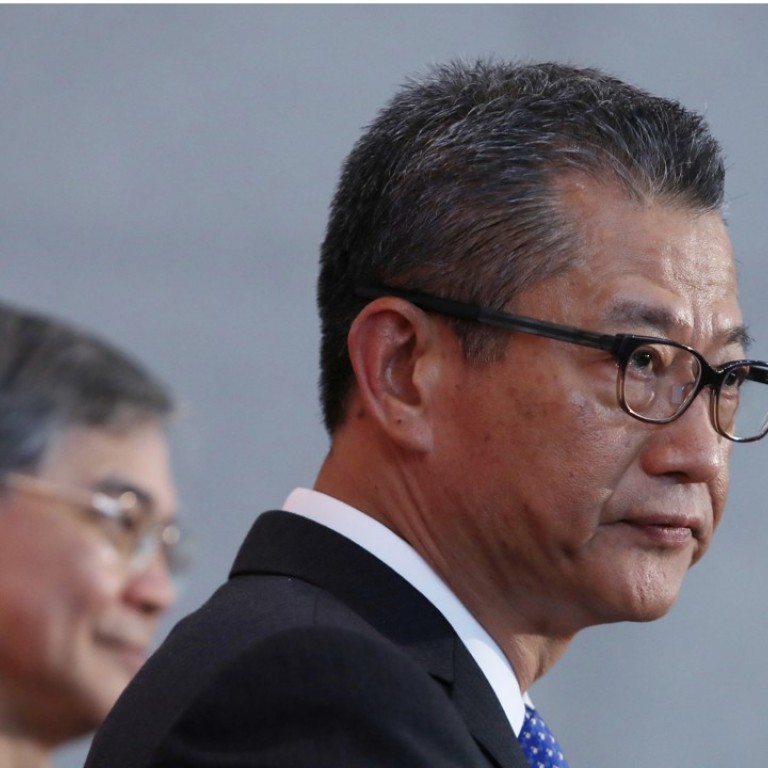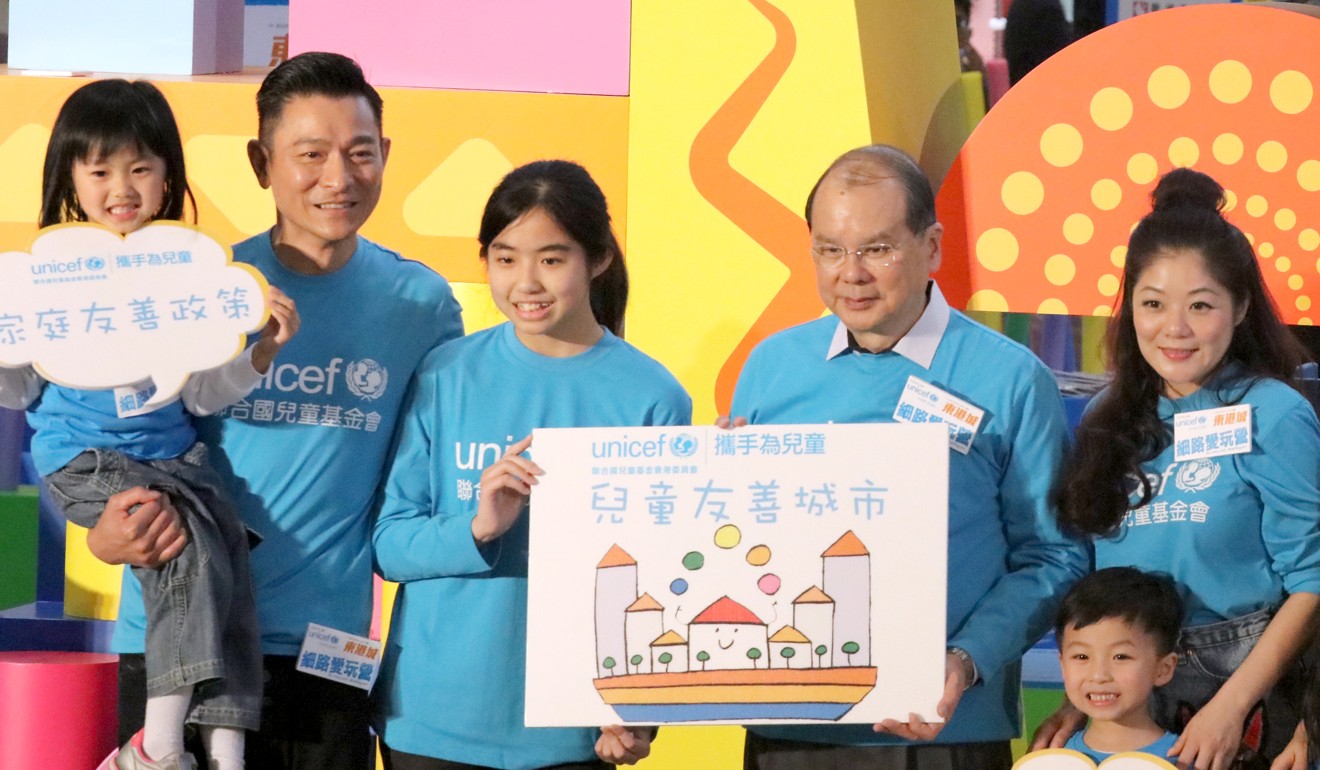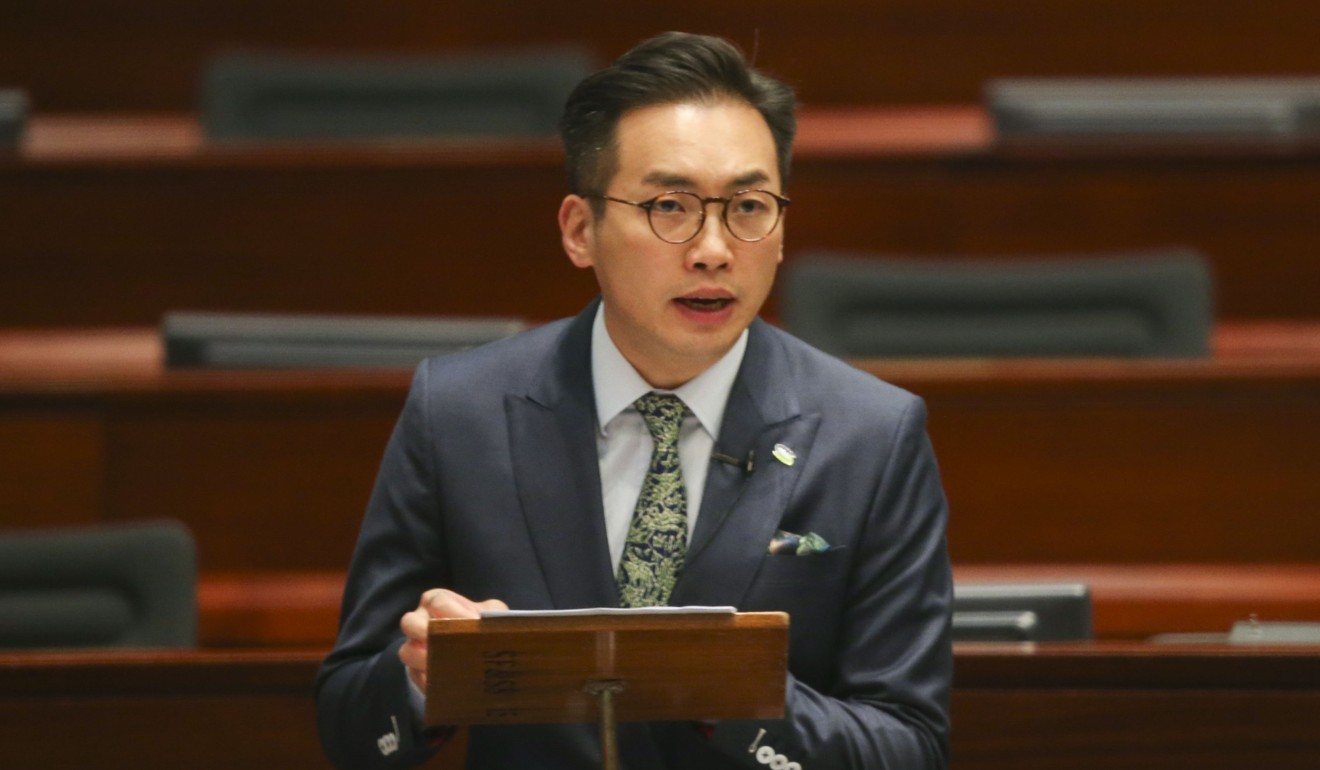
Cash handout scheme will cost a ‘few per cent’ to run, Hong Kong finance chief Paul Chan says
Top officials present a united front on the proposed HK$4,000 payout a day after lawmakers across the political spectrum criticised the plan
Administering the HK$4,000 cash handout for Hongkongers will cost a few per cent of the HK$11 billion (US$1.4 billion) scheme with little red tape, top officials said on Sunday, as they tried to ease public concerns about it being complicated and costly.
Chief Secretary Matthew Cheung Kin-chung and Financial Secretary Paul Chan Mo-po presented a united front a day after lawmakers across the political spectrum criticised the scheme – announced amid intense political and public pressure – as too complex, fearing costs would balloon.

“The administration cost of the proposed scheme will depend on the number of applicants, but preliminarily it is expected to be a few per cent of the sum intended to be dished out,” Chan wrote on his weekly blog on Sunday.
“We will try our best to minimise the relevant cost.”
‘Complicated and costly’ cash handout scheme criticised by lawmakers
The administration cost would be HK$550 million, should it be 5 per cent of HK$11 billion in spending.
Chan said that while the recipients of social allowances under the budget would receive an extra payment equivalent to two months of the allowance, they could also claim the difference if the payment fell short of HK$4,000.
Extra office space, manpower and computer systems, he said, would be allocated to the Working Family Allowance Office under the Labour and Welfare Bureau, which would administer the handout.

It was understood that over 100 contract staff would be hired to handle the caseloads.
Hongkongers who were out of town for studies and work, alongside new arrivals, were also entitled to the handouts, Chan added.
Cheung, Hong Kong’s No 2 official, also weighed in on Sunday, urging members of the public not to worry about the scheme as concrete operational details would be unveiled soon.
“We will adopt a people-centred and applicant-friendly way [in offering the handout]. The [procedure] will be simple and easy to understand,” he said.
Paul Chan’s cash handout plan praised for ‘bravery’
Cheung said the government would not discriminate against new arrivals, adding the group was also eligible for the Working Family Allowance Scheme, which encouraged them to join the work force.
A government source said it was legitimate to include new migrants in the scheme as they now considered the city as their home so they should be taken care of as well. In 2016, 57,387 mainlanders moved to Hong Kong as new arrivals. The daily quota of such one-way permits is 150.

Civic Party leader Alvin Yeung Ngok-kiu said while it was understandable for the government to help those left out in the budget, he had strong concerns on whether it was wise to spend hundreds of millions on administration when the money could be spent elsewhere on the needy.
“We would have to make a judgment call on that,” he said.
Despite supporting the scheme, Democratic Party chairman Wu Chi-wai said there was room for the handout procedures to be simplified.
However, New People’s Party chairwoman Regina Ip Lau Suk-yee, also an Executive Council member, said the administration cost would not be a waste as it could create jobs.
Ken Yau Tsz-ken, assistant director of the social sciences faculty at the University of Hong Kong, said the sudden government U-turn proved something was wrong with the policymaking process.
“The idea of a cash handout was widely discussed during the consultation period before the budget. So why did the government only backtrack afterwards, when the public voiced their displeasure?”
Separately, Legislative Council Finance Committee chairman Chan Kin-por would meet with representatives from the pro-democracy camp on Monday to decide how the committee’s agenda should be reshuffled to ease the backlog of government funding applications.
The government was hoping lawmakers would scrutinise reconstruction of Grantham, Queen Mary and Kwong Wah hospitals first, among many items.
Additional reporting by Raymond Yeung

